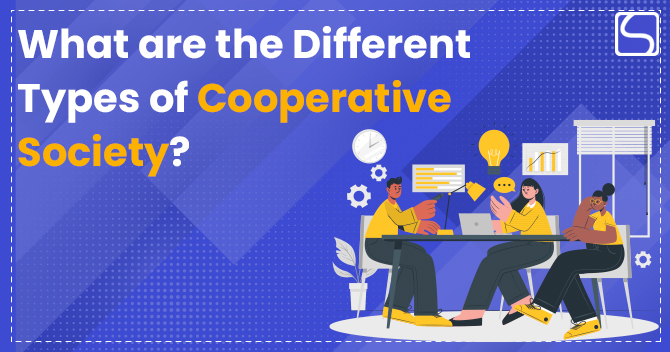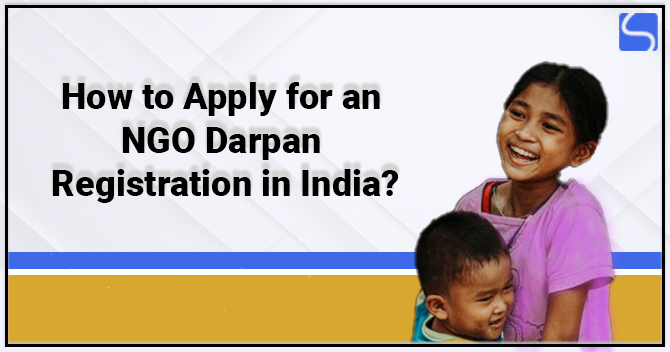An Overview of Difference between NGOs and Trust

Ganesh Nair | Updated: Aug 20, 2022 | Category: NGO
In India, NGOs can be of three types: i) Not-for-profit organisations registered as a section 8 company (NGO). ii) Societies & iii) Trusts. In this blog, we shall be discussing the difference between an NGO and a Trust.
Before we begin with the differences between NGOs and Trust lets understand what each type of NGO registration signifies.
Table of Contents
Non-Governmental Organisation:
A Non- Government organisation is an association that operates independently without any government intervention. Participation in such an organisation is voluntary, and generally, it is to serve a social mission. Social work includes addressing the issues of environment, health, the welfare of women and children, education, fostering animals and human rights.
Non- government organisation works on various fronts to encourage the government to listen to the citizens’ problems and create policies that favour the masses. They receive funds from the government, private individuals or businesses to facilitate their endeavours.
They can be registered as a section 8 company under the Companies Act 2013[1]. An NGO registered as a section 8 company shall act as a limited liability company as per the law.
Societies:
Societies are member-based organisations that function for charitable purposes. These societies function under the direction of the management committee or governing body. A society must follow the regulations of the Memorandum of association and its Articles of Association. These are governed by the laws laid down by the Societies Registration Act, 1860.
Trusts:
Trust is one of the forms of NGOs in India. These are registered to work on activities such as providing education, supplying medical relief, eradicating poverty, etc. Trusts are run as per the regulations laid down in the trust deed. These activities are carried out by the trustee who is appointed to look after the property. No changes can be made in them unless the deed provides the trustee the power to do so. There are no specific regulations for a trust that the government lays down. Still, in case of states such as Maharashtra and Gujarat have devised their public trusts act to regulate the affairs of the NGOs. Trusts are a type of NGO, but they differ from the other two forms.
Difference between NGO and Trust
The following table shows the Difference between NGO and Trust
| Basis | NGO | Trust |
| Statute | Companies Act, 2013 | Indian Trusts Act 1982 or Public Trusts Act |
| Estimated Time required for Registration | NGOs usually take between 15 days to 1 month to get registered. | Trusts take anywhere from2 days to a week to get registered. |
| Authority of registration | Registrar of Company | Charity Commissioner/ Sub-registration of Registration |
| Issue of Name Approval | The name of an NGO must be acquired by making application to the registrar of companies. This process must be done before the registration of the NGO. | Approval is not required, if the name is not mentioned under the State Emblem of India Act,2005 |
| Minimum number of Directors | ‘A minimum of two directors are required. | A minimum of two trustees and at least 3 members are required. |
| Structure of governance | General body directors board of Directors, | Board of trustees executive committee |
| Rights of vote and Power | The voting rights keep on varying as it is based on the shareholding capacity of the directors | All the trustees have an equal voting rights, except for the managing trustee. If other authorized persons have to be given voting rights, then this can be done by making a provision for the same in the trust deed. |
| Annual reports and other documents to be submitted or filed. | NGOs must submit annual returns and audited accounts by the end of the financial year. | Trust is not required to submit any annual report after getting the trust registered with the authorities. However, the General body and other committees and sub-committees need to maintain a record of the meetings, decisions, resolutions or any such decision. |
| General body and Board meetings | The companies act has laid down provisions for meetings. In this NGO must hold at least one Annual general board meeting. And a total of four board meetings are to be held every year. | There are no provisions which expressly state that trust must conduct meetings. But the trust must meet regularly. So the trust should create rules which facilitate the meetings |
| Transfer of Directorship/trusteeship | Directorship in an NGO can be transferred. | The Trusteeship cannot be transferred as per the Indian Trust Act for Charitable trust as NGO |
| Recurring expenditure | Annual Returns and balance sheet have to be filed and requisite fees for the same also needs to be paid. | No recurring statutory charges is levied on trust post registration |
| Can the members get funds | After the approval from General body of the NGO, payment can be given. | Trustees are not eligible to receive funds. But if the provision in the trust deed states about it then the trustee can get funds. |
Conclusion:
NGOs are an essential part of a healthy functioning society. They not only provide aid to people in their time of distress but also bridge the gap between the people and the government by bringing their issues to the forefront. NGOs have time and again proved to be essential where it has played a vital role in the welfare of people and safeguarding their rights. In India, NGO registration can be categorised into three. NGO under section 8, a society or a trust. The article enumerates various points through which the Difference between NGOs and Trust could be understood.
Read our Article:Formation of a trust under the Indian Trust Act















